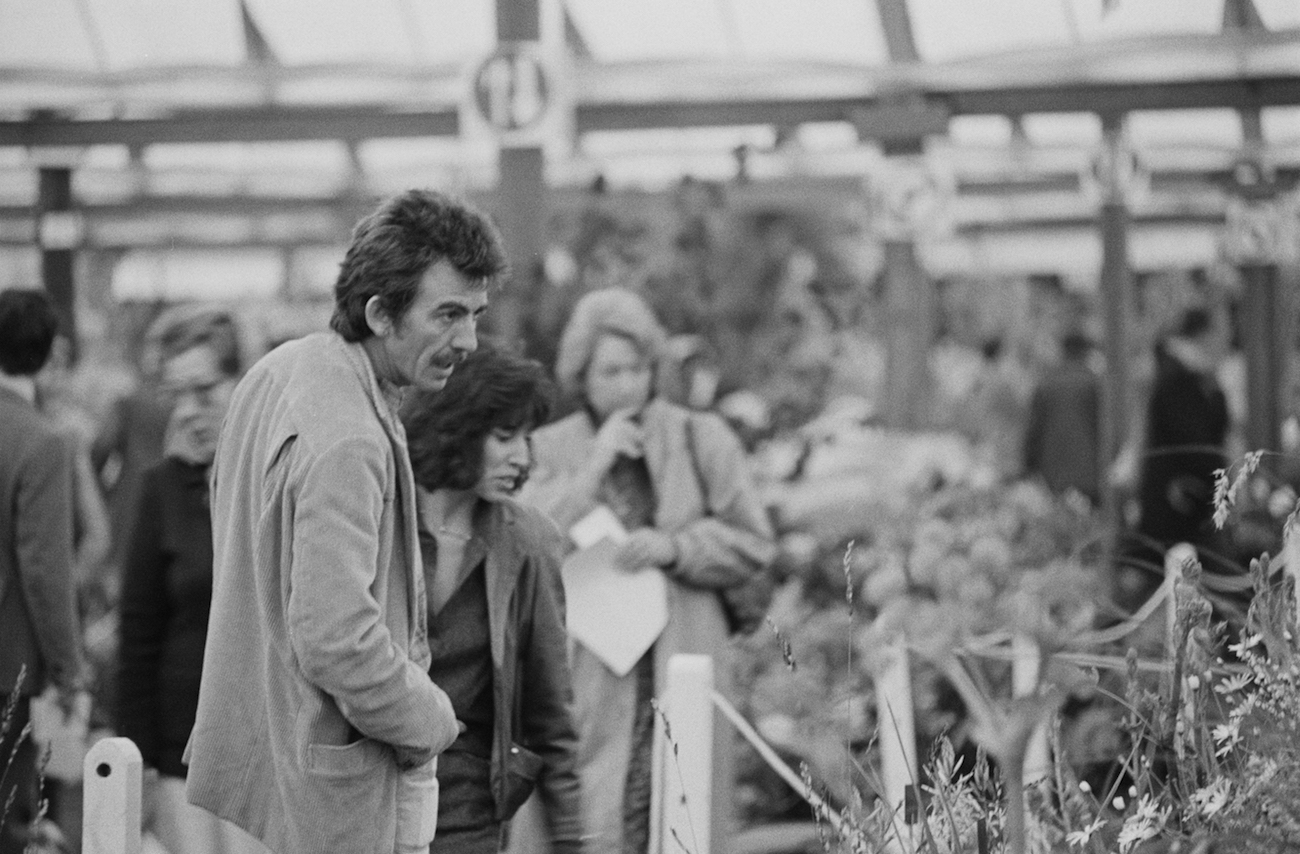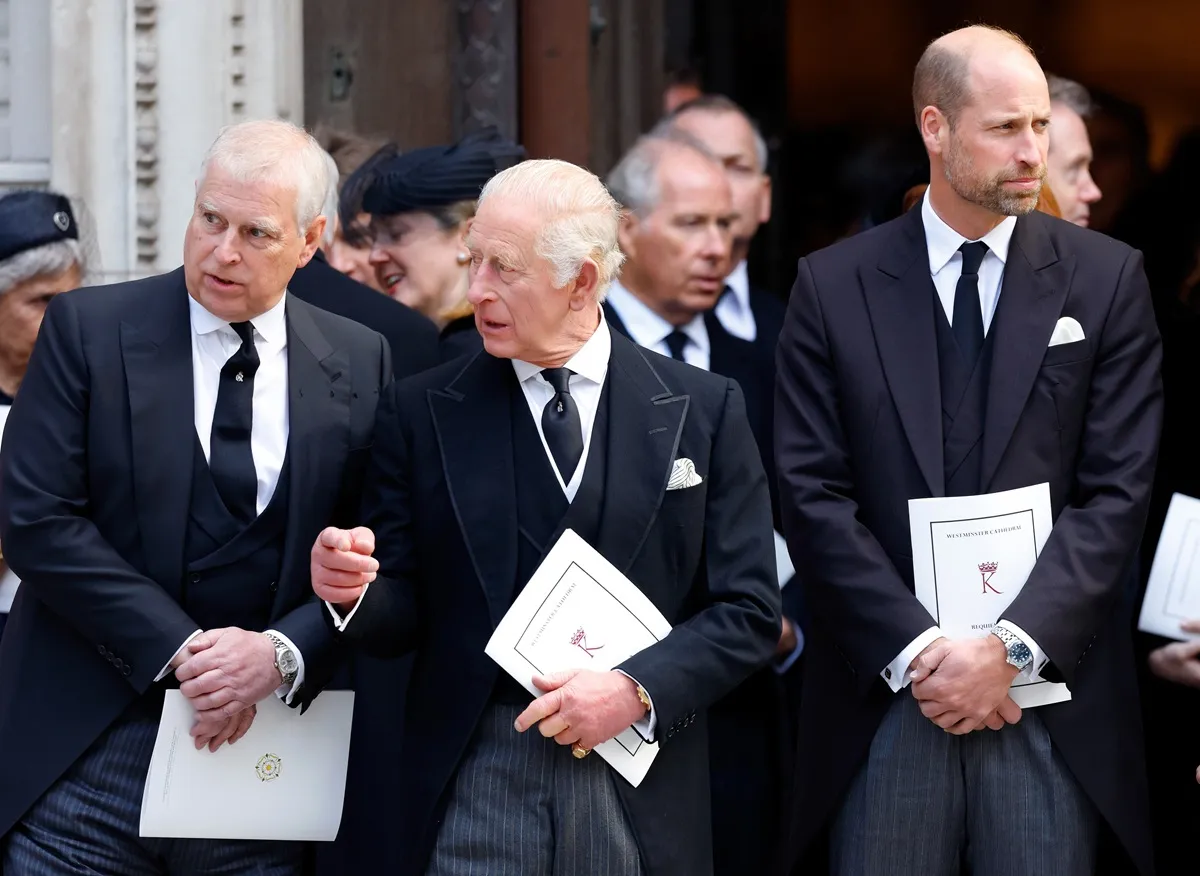George Harrison Felt Closer to God Through Nature Claims His Wife Olivia
George Harrison was always on the hunt for God. He listened to different music to get a “direct experience” and explored all types of religions. However, George didn’t just use music and spirituality to reach his maker. He connected to God through nature. The “quiet Beatle” was only ever quiet in his garden, which he treated like his temple. Everything was perfect in the garden, just like God is perfect.

George Harrison “became a gardener” when he bought Friar Park
George bought Friar Park, a Victorian neo-Gothic mansion in Henley-on-Thames, England, in 1970. The property was built in 1889 by Sir Frank Crisp, and it has 35 acres of gardens. George bought the huge property because he didn’t want to live in London. He wanted someplace quieter.
George restored the grounds first because they’d fallen into ruin. He handled this project as he began recording his first solo album, All Things Must Pass. The cover of the album shows a picture of George sitting in Friar Park’s gardens.
“I decided to become a gardener,” George said in an interview, explaining what he did after leaving The Beatles. “I like the garden. Well, you know, like Chauncey Gardiner in the film, Peter Sellers. It’s true, in the garden, you see all the seasons come and go, and whatever you do can affect it all. But at the same time, the flowers don’t answer you back. Don’t give you no trouble. It’s very nice.”
Olivia Harrison says George Harrison felt connected with God in the garden
A year after George’s death, in 2002, his widow, Olivia Harrison, told Katie Couric on NBC that George “felt most at home outside — in the gardens of Friar Park.” It was raining when Olivia and Couric sat down in the estate’s gardens, but George would have said the rain was good for his shrubbery.
“You know, it was really nature that he loved,” Olivia said. “And I think he felt closest to God in nature. Yes, he loved it here. You know early on, he had to get out of London. And so we kept moving further and further away from London. And he found a place where he could get away from the crowds and this was it.” Friar Park was a stark contrast to the busy streets of London. George could barely go outside without being recognized.
In Martin Scorsese’s documentary George Harrison: Living in the Material World, Terry Gilliam talked about George’s struggle with being spiritual and living in a material world. However, Gilliam said that George found common ground by finding beauty in the real world.
“To create, make the real world as beautiful as it can be,” Gilliam explained what George did. “And that’s what I think he was doing in Friar Park. He created such exquisite beauty there, but there was nothing airy-fairy about it, and it wasn’t about somebody snapping his fingers and having somebody else do it for him. He had to do the work.”
George spent hours in his garden and liked to look at it at midnight
George’s son Dhani was pretty sure his father “was just a gardener,” growing up at Friar Park. A reasonable conclusion writes Rolling Stone, since George often worked on his garden 12 hours a day, “missing family dinners as he pursued his vision, planting trees and flowers.”
“Being a gardener and not hanging out with anyone and just being home, that was pretty rock & roll, you know?” said Dhani. “When you’re in a really beautiful garden, it reminds you constantly of God.”
In Scorsese’s documentary, Dhani said, “He’d be like, ‘Get that pond, put it over there, and move that hill. Don’t like that hill.’ And the next week, it would be pond over there, hill over there. And it would look better. He’d garden at nighttime. He’d garden until midnight, and he’d be out there squinting because he could see at midnight, he could see the kind of moonlight, and you could see the shadows, and that was his way of not seeing any of the weeds and imperfections that would plague him during the day. So he’d be able to imagine what it was gonna look like when it was done.”
Later, when Dhani went back to Friar Park, he looked out at the garden. “He’s probably laughing at me,” Dhani said, “saying, ‘That’s what it’s supposed to look like.’ You don’t build a garden for yourself, right now — you build a garden for future generations. My father definitely had a long view.”


